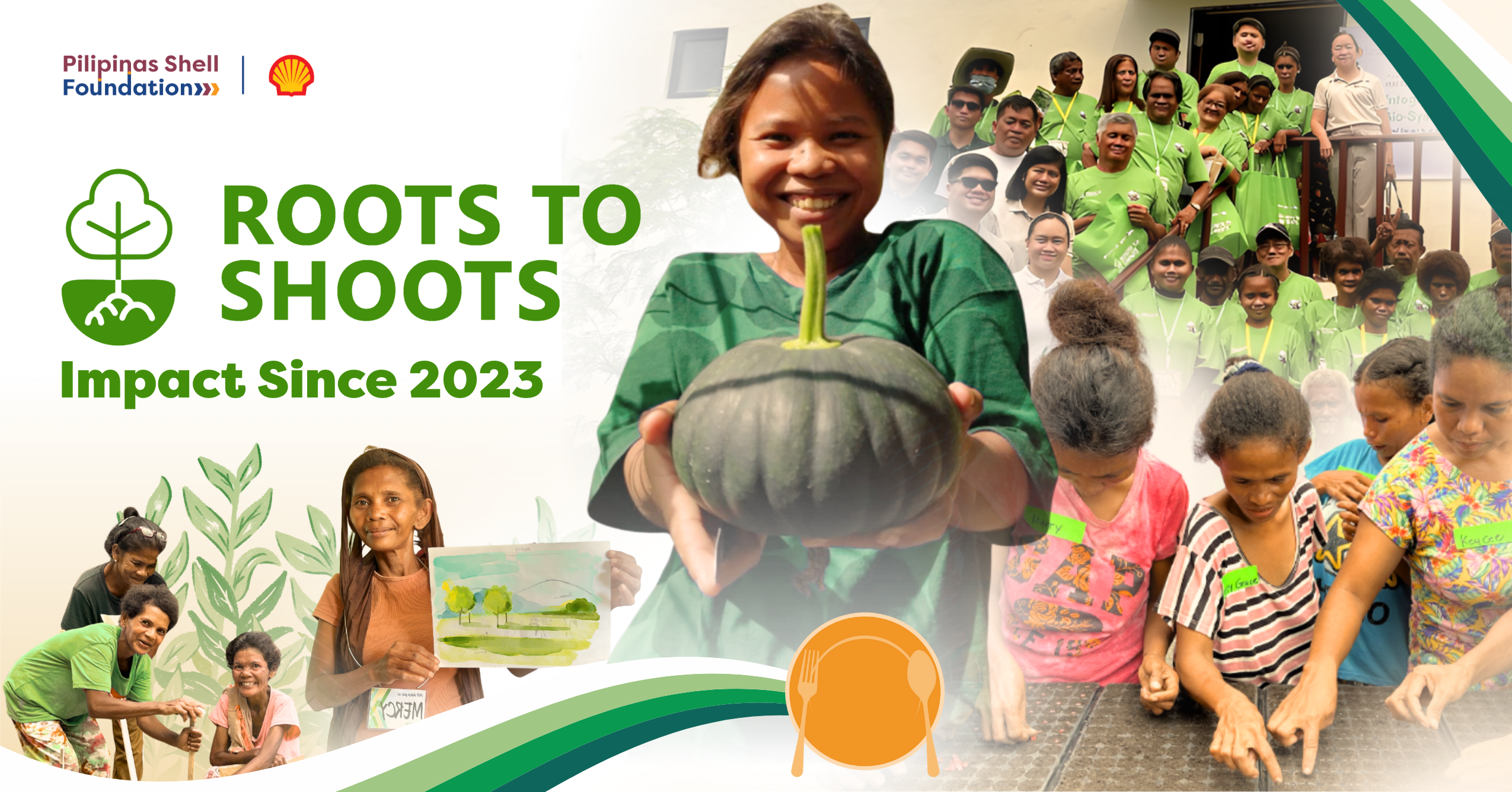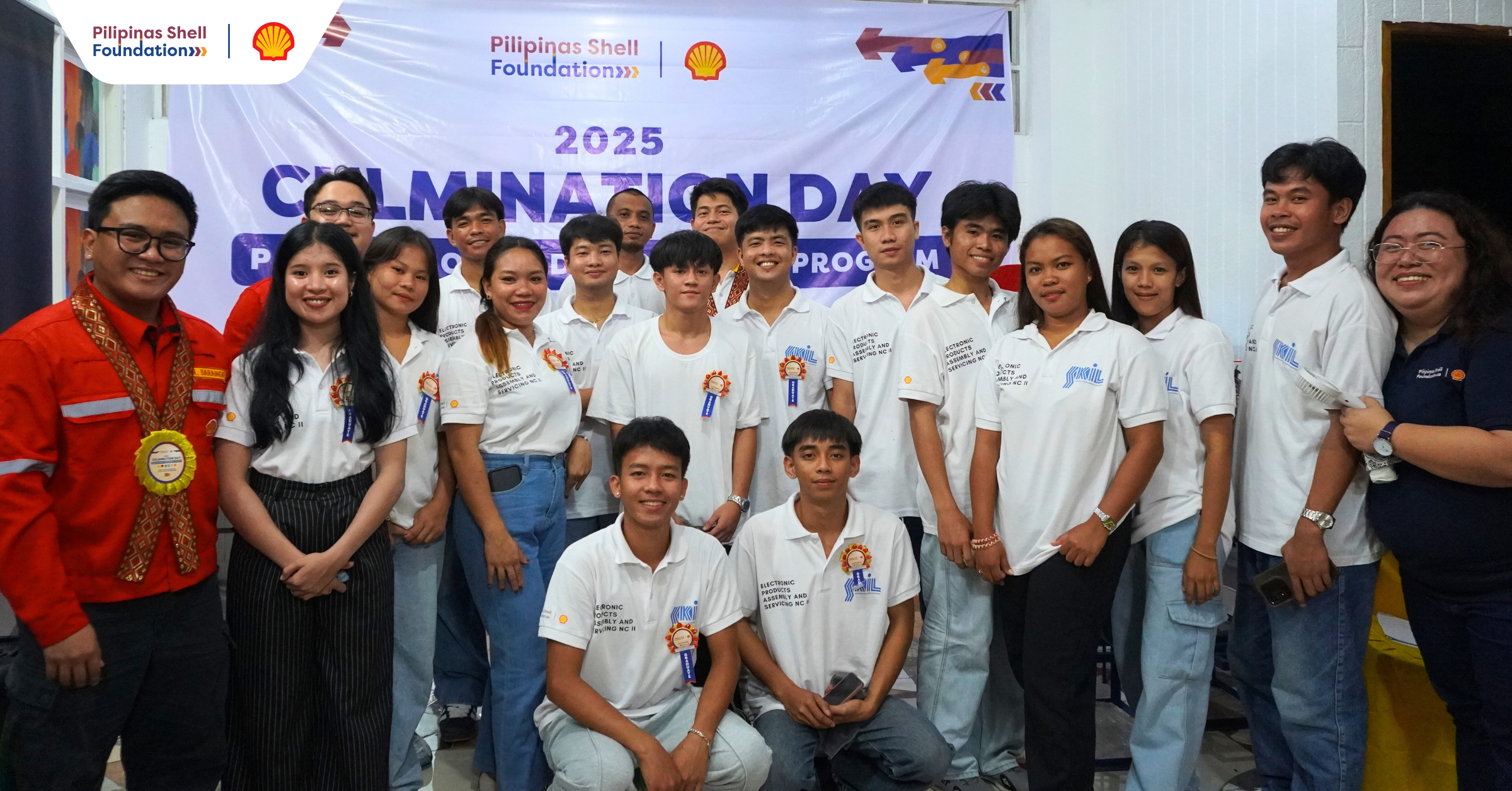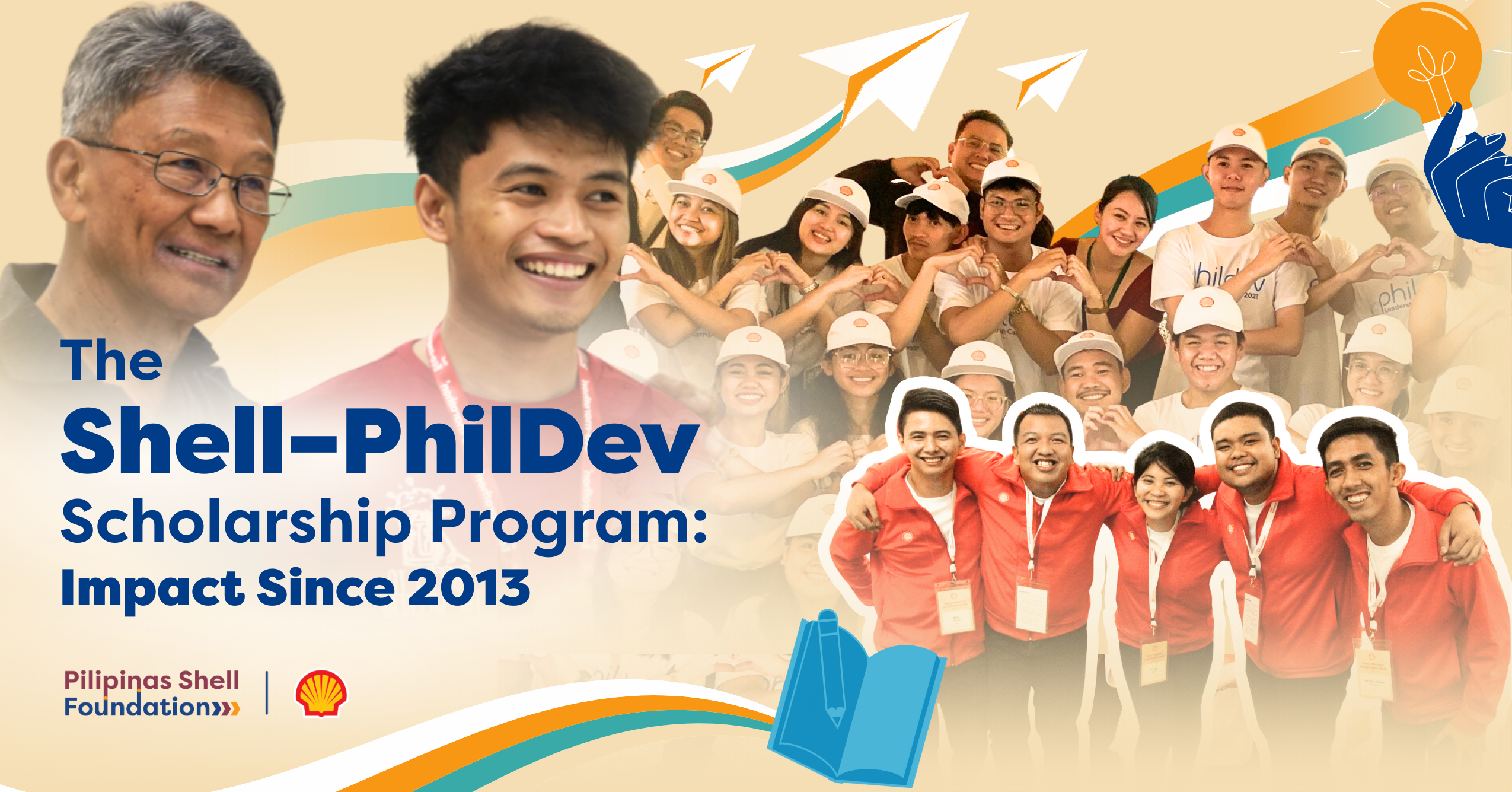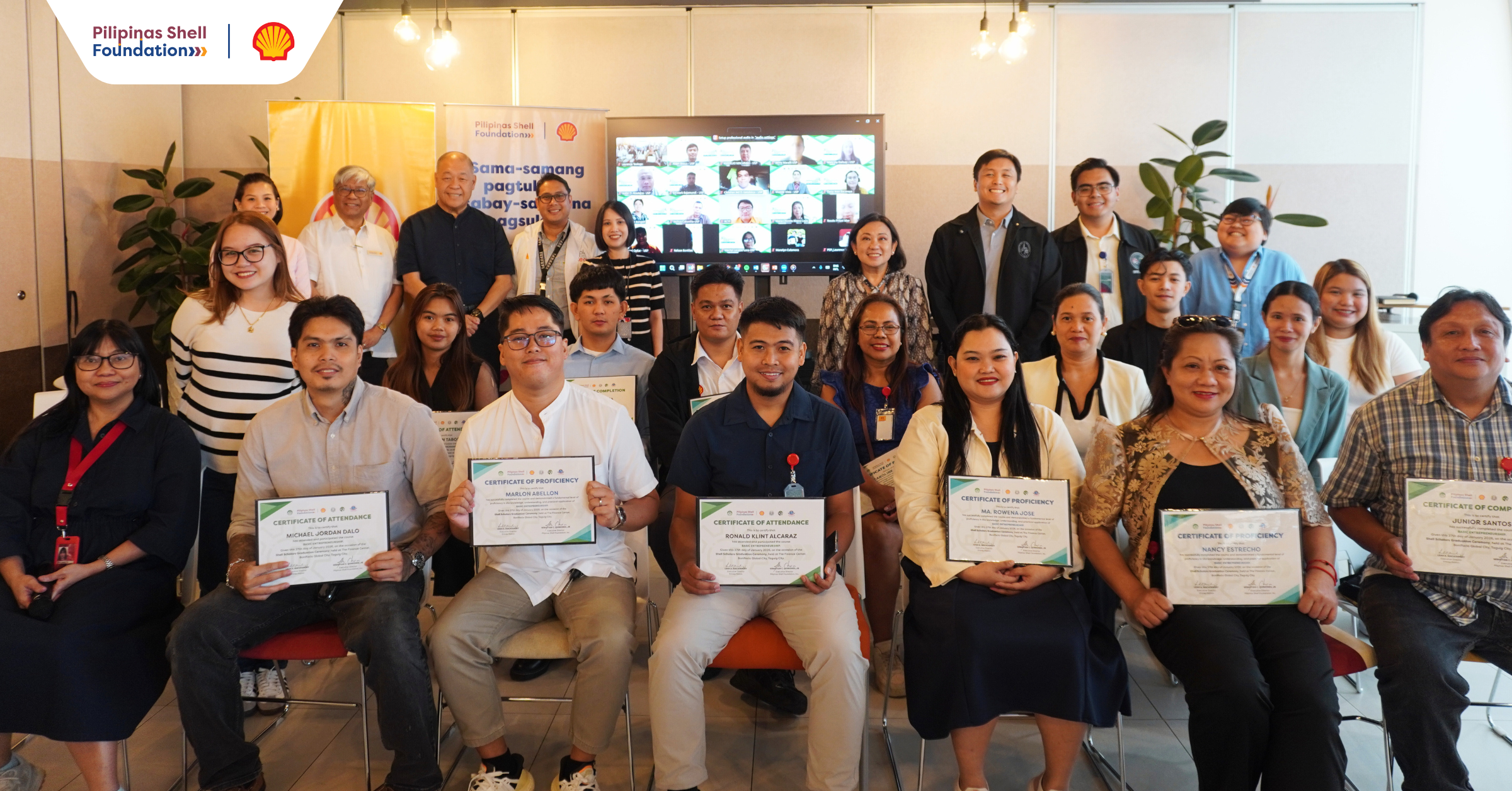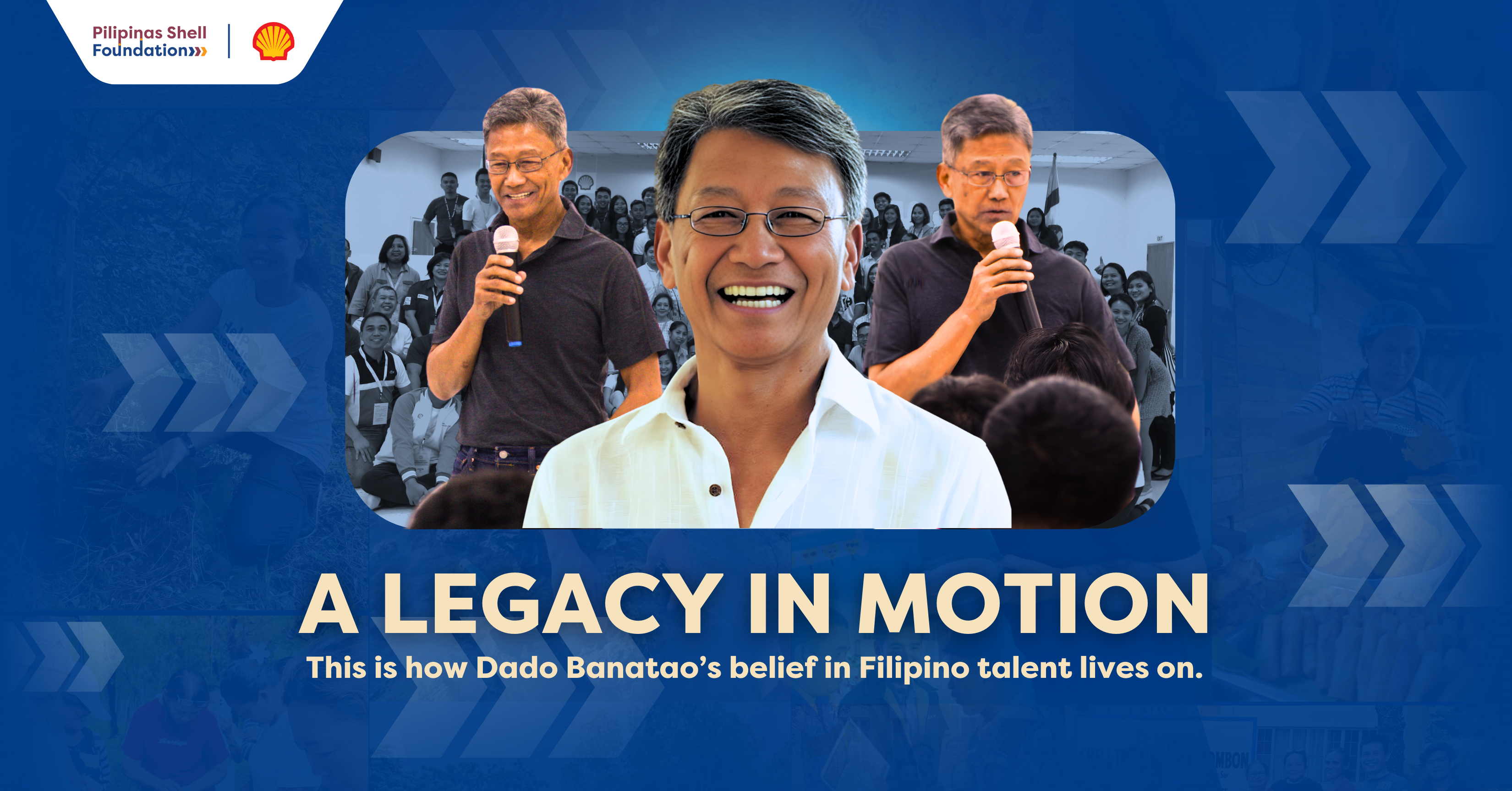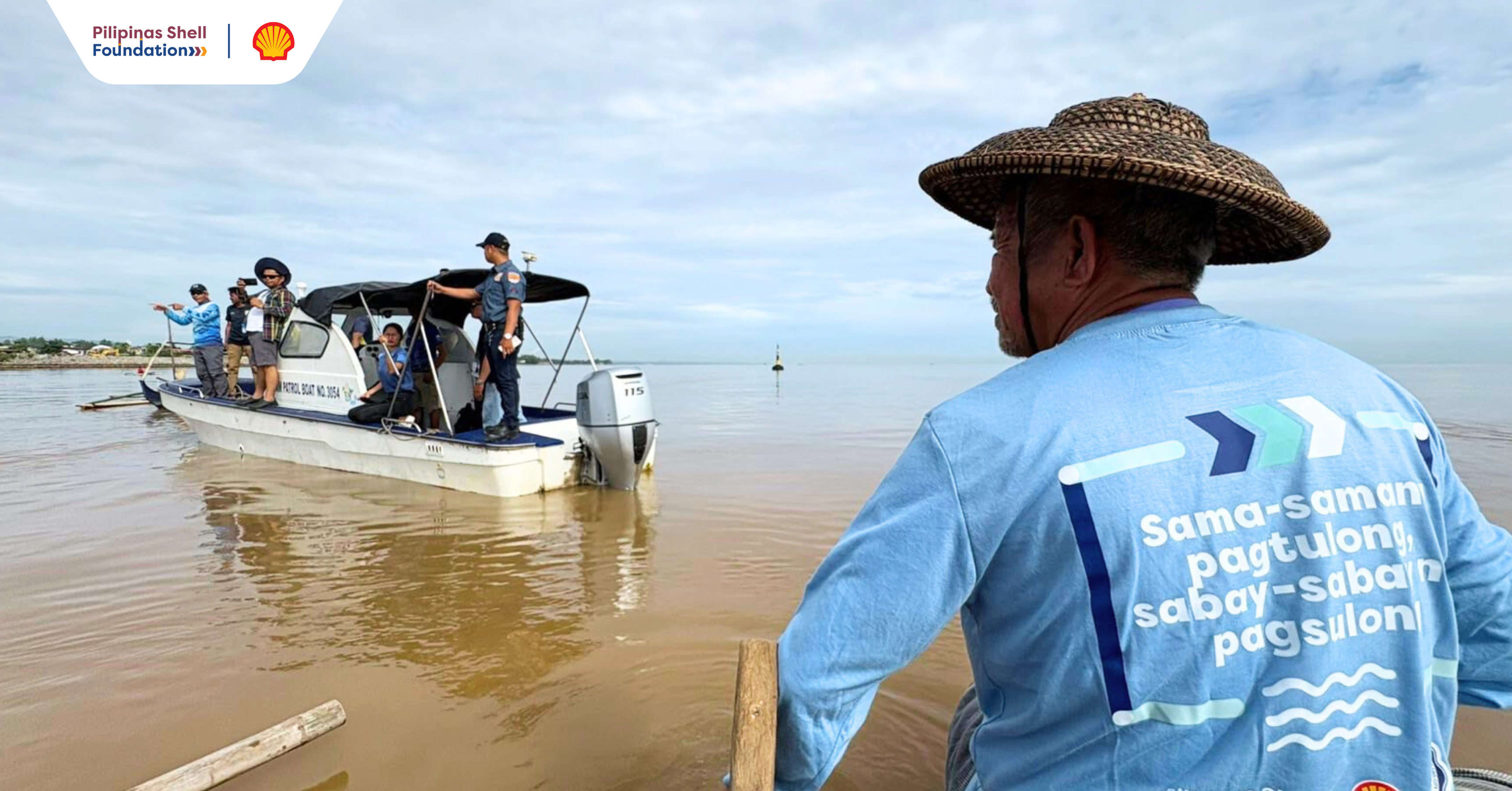
On August 15, 2025, the fisherfolk communities of Barangays Puntod and Macabalan in Cagayan de Oro joined forces with key government agencies and Pilipinas Shell Foundation, Inc. (PSFI) in a geotagging activity that identified suitable sites for the installation of payaos or fish aggregating devices.
The activity was built on months of dialogue and collaboration. It began with a pakighinabi (community dialogue), where fisherfolk voiced a wide range of concerns—including the alarming decline in fish catch. To respond, PSFI and partners convened a series of focused consultation meetings that zeroed in on solutions specific to payaos. These sessions drew on policy expertise, technical insights, and digital mapping to carefully chart the next steps.
Representatives from the Philippine Ports Authority, Philippine Coast Guard, Bureau of Fisheries and Aquatic Resources, Maritime Police, Agricultural Productivity Operations Office, Harbor Pilot, Northern Mindanao Import Facility (NMIF), and PSFI came together to support the initiative.
The geotagging activity then confirmed safe and strategic sites for payaos, ensuring they were located away from navigational routes to avoid risks to maritime traffic and to secure operational efficiency.
By enhancing fish aggregation, the payaos are expected to increase fish stocks, enabling fisherfolk to catch more, sell more, and ultimately earn more. Beyond income, the devices also represent a sustainable approach to fishing that safeguards marine resources for future generations.
“This is more than just about placing markers in the sea,” shared one community representative during the activity. “It is about reclaiming hope for our families and our livelihood.”
This project exemplifies how collaboration fuels success, showcasing the power and impact of strong partnerships. With PSFI, Shell companies in the Philippines (SciP), local fisherfolk, and government agencies working hand-in-hand, the initiative reflects a shared commitment to community resilience, safety, and sustainable fishing practices.
Through digital mapping, policy dialogue, and on-the-ground collaboration, the fisherfolk of Puntod and Macabalan are not just being given tools—they are being given renewed confidence that their way of life can thrive in harmony with both nature and modern maritime demands.



